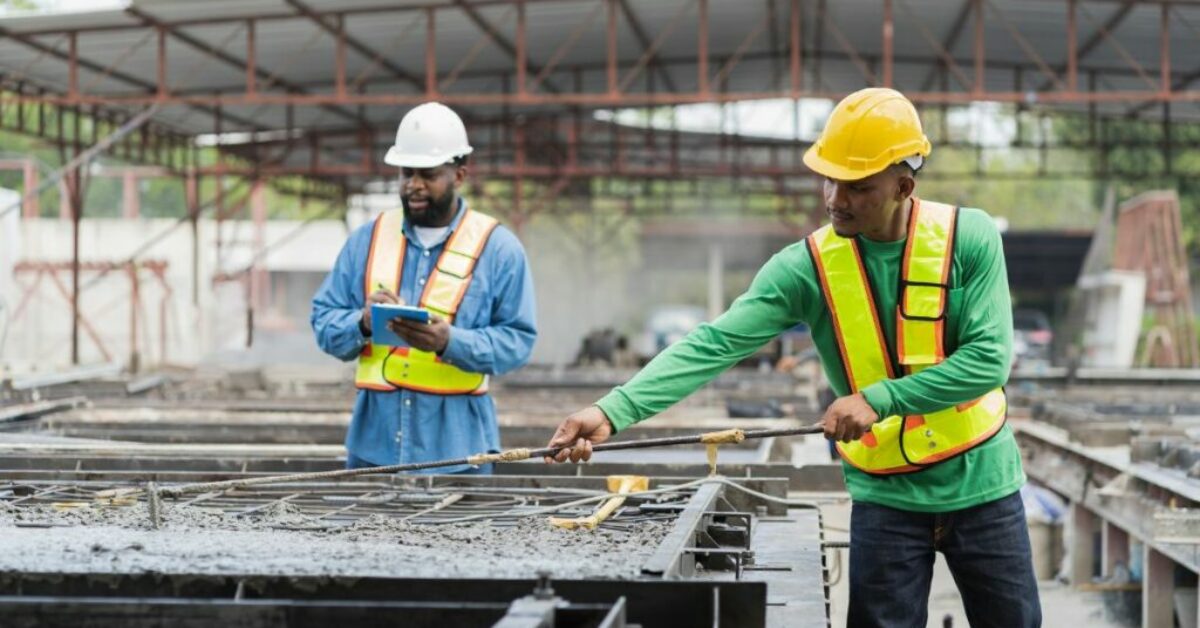How To Become A Cement Mason?
Are you looking for a career in the construction industry that will provide you with job stability and growth opportunities? Becoming a cement mason may be the right choice for you. In this article, we’ll walk you through the steps you need to take to become a successful cement mason, the skills you’ll need to develop, and the benefits of working in this field.
Steps To Becoming A Cement Mason
Before diving into the details, it’s important to know what a cement mason does. Cement masons work primarily with concrete, pouring, leveling, and finishing its surface. They work in various construction projects, including highways, buildings, bridges, and dams. Cement masons must have physical stamina, as the job requires standing, kneeling, and bending for long hours. They must also have the ability to work in teams and follow safety procedures.
To become a cement mason, you need to follow these steps:
- Complete your education:
A high school diploma or an equivalent qualification is necessary to become a cement mason since it requires basic math skills. Additionally, vocational classes or certification in construction-related tasks can give you an advantage. Some schools offer courses in concrete technology or masonry, which can provide you with a head start in your career.
- Apprenticeship:
Cement mason apprenticeship programs last for three to four years, specifically designed to provide you with hands-on training and education. During your apprenticeship, you’ll learn concrete mixing, placement, and finishing techniques. You’ll also learn how to use various tools and equipment, including power trowels, screeds, and edgers. You can find such programs through unions, companies, or vocational schools. Apprenticeships are paid, so you’ll earn while you learn.
For instance, the Operative Plasterers’ and Cement Masons’ International Association (OPCMIA) & job boards like Apprenticeship.gov provides comprehensive apprenticeship programs that equip individuals with the necessary skills and knowledge for a successful career in cement masonry. - On-the-job training:
After you complete your apprenticeship, you’ll need additional training to become proficient in specialized construction techniques related to concrete finishing, surface decoration, and repair. Cement masons get trained on practical or real-world scenarios, which prepares them for any construction project. You’ll work under the supervision of experienced masons, who will guide you through the process. On-the-job training can take several months to a year, depending on the complexity of the project.
- Certification:
Cement masons can acquire certification, which provides more job opportunities and gives you an edge over the competition. Certification is not mandatory, but it demonstrates your commitment to the profession and your willingness to learn and grow. The American Concrete Institute (ACI) offers several certification programs, including the Concrete Flatwork Finisher and Technician certifications.
Additionally, the Mason Contractors Association of America (MCAA) provides a national Masonry Certification program aimed at ensuring contractors meet high-quality standards in masonry work. Some states have certification requirements, as well.
Becoming a cement mason requires patience, dedication, and hard work. It’s a physically demanding job that requires attention to detail and precision. However, it’s also a rewarding career that offers job security, good pay, and opportunities for growth. If you’re interested in becoming a cement mason, start by researching apprenticeship programs in your area and talk to experienced masons to learn more about the profession.
Skills Needed For Becoming A Cement Mason
Cement masons are skilled professionals who are responsible for creating, repairing, and maintaining concrete structures. They work with a variety of materials, including concrete, mortar, and grout, to build everything from sidewalks and driveways to buildings and bridges. Cement masons need to be detail-oriented, physically fit, and possess a range of technical skills to perform their job effectively.
One of the most important skills that cement masons need is physical fitness. The job requires them to stand and work in all weather conditions, often for long periods. They also need to be able to lift heavy equipment, such as concrete mixers and trowels, on a regular basis.
In addition to being physically fit, cement masons also need to have a strong foundation in basic math. They need to be able to accurately measure, cut, and pour concrete to ensure that the finished product is structurally sound and meets client specifications.
Cement masons also need to have excellent hand-eye coordination. They use handheld tools to mold or finish concrete surfaces, which requires precision and dexterity. They must be able to work quickly and efficiently, while still maintaining a high level of quality.
Another important skill for cement masons is creativity. They should be capable of creating unique designs for decorative concrete finishes, following client specifications. This requires a combination of technical skill and artistic flair, as well as the ability to work closely with clients to understand their vision and bring it to life.
Overall, becoming a cement mason requires a combination of physical fitness, technical skill, and creativity. If you are interested in pursuing a career in this field, it is important to develop these skills through education, training, and hands-on experience.
What is a Cement Mason?
Cement masonry is a highly specialized field that requires a great deal of skill and expertise. These professionals are responsible for creating the surfaces that we walk and drive on every day, and their work is essential to the construction industry.
In addition to their technical skills, cement masons must also have a keen eye for detail and a strong sense of creativity. They must be able to envision the finished product before they even begin their work, and they must be able to work with a variety of materials and tools to achieve the desired result.
One of the most important aspects of cement masonry is the ability to work quickly and efficiently. These professionals must be able to complete their work within tight deadlines and under challenging conditions. They must be able to work in extreme heat or cold, and they must be able to adapt to changing weather conditions.
Cement masons must also have a strong understanding of safety procedures and protocols. They work with heavy machinery and equipment, and they must be able to operate these tools safely and effectively. They must also be able to identify potential hazards and take steps to mitigate them before they become a problem.
Despite the challenges of the job, cement masonry can be a highly rewarding career. These professionals take pride in their work and in the knowledge that they are contributing to the construction of essential infrastructure. They are an integral part of the construction industry, and their work is essential to the growth and development of our communities.
The Benefits of Working as A Cement Mason
Are you considering a career in the construction industry? Becoming a cement mason can be a fulfilling career that offers job satisfaction and growth opportunities. Here are some additional benefits of a career in this field:
- Job security: Cement masons are in high demand regardless of economic conditions. Construction projects are always in progress, so there is always a need for cement masons. This means that you can enjoy a stable career path and not have to worry about finding work.
- Good pay: According to the Bureau of Labor Statistics, the average yearly salary in the United States was around $53,010 as of May 2023. This is a great salary for a job that does not require a college degree.
- Personal satisfaction: Cement masons often get a sense of satisfaction in providing a durable, long-lasting, and eye-catching product. They contribute to concrete structures that will remain in place for many years, improving safety and convenience for people. You can take pride in your work and see the results of your efforts for years to come.
In addition to these benefits, there are many other reasons why working as a cement mason can be a great career choice. For example, you will have the opportunity to work outdoors and enjoy the fresh air and sunshine. You will also get to work on a variety of projects, from small residential jobs to large commercial buildings. This means that your work will always be interesting and challenging.
Another benefit of working as a cement mason is that you will have the opportunity to work with a variety of tools and equipment. You will learn how to use concrete mixers, trowels, and other tools of the trade. This can be a great way to develop new skills and knowledge that can help you advance in your career.
If you’re interested in becoming a cement mason, there are many resources available to help you get started. You can research apprenticeship programs in your area and build your education and training path accordingly. You can also talk to other cement masons and learn from their experiences. With hard work and dedication, you can enjoy a rewarding career in this field.




